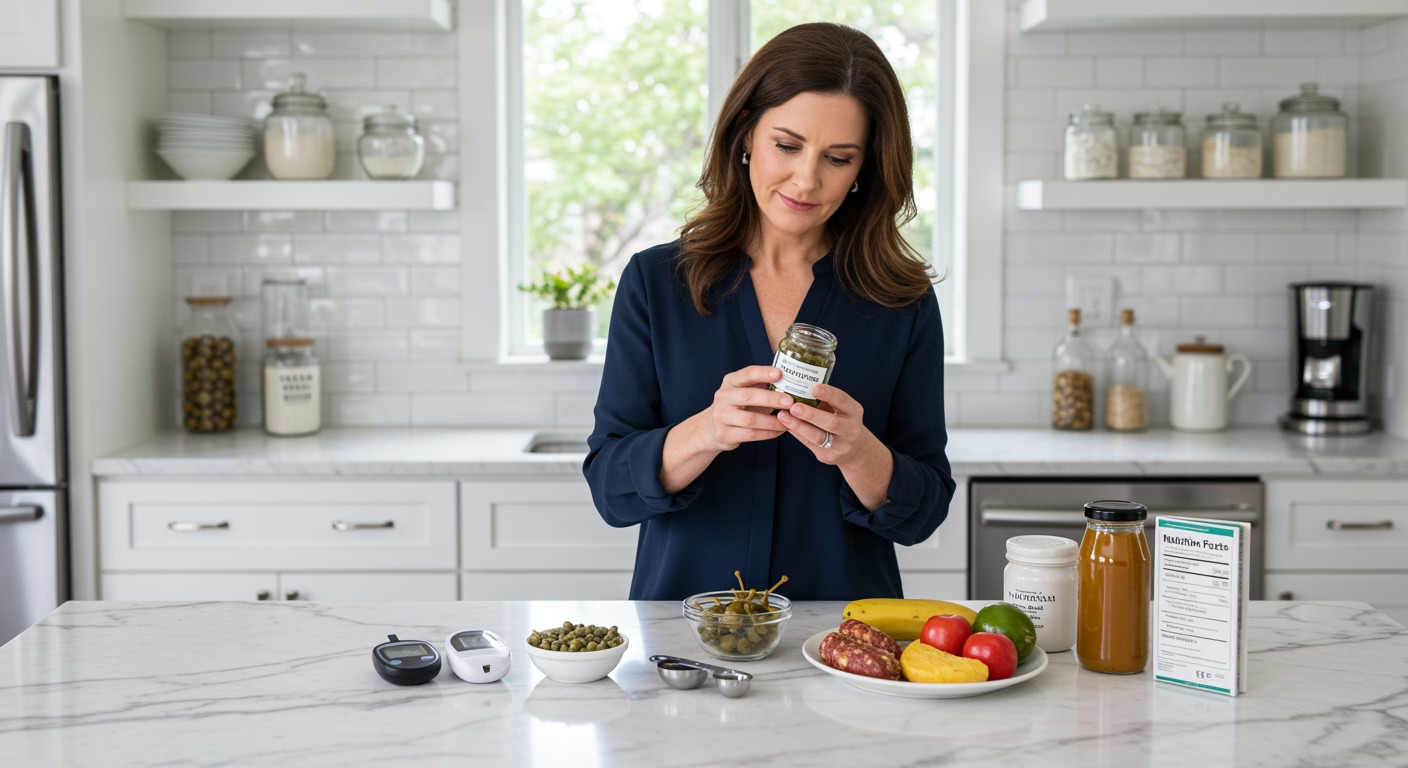✪ Key Takeaway: Capers are excellent for diabetes as they contain zero carbs, provide antioxidants, and help control blood sugar naturally.
Introduction
You see those tiny green buds scattered on your salmon or pizza and wonder if they will spike your blood sugar.
Many people with diabetes avoid capers because they taste salty and seem processed, making them question whether these Mediterranean staples fit into their meal plan.
Hi, I am Abdur, your nutrition coach and today I am going to explain exactly how capers affect your blood sugar and why they might become your new favorite diabetes-friendly ingredient.
What Makes Capers Different From Other Condiments?
Capers are flower buds from the caper bush that grow wild across the Mediterranean region.
Unlike most condiments that contain sugar or starch, capers are virtually carb-free with only 0.4 grams of carbs per tablespoon.
The pickling process uses salt and vinegar, which actually helps preserve nutrients without adding sugars that would raise blood glucose.
Most commercial pickled foods contain added sugars, but traditional caper preparation relies only on natural fermentation and salt curing.
This makes them fundamentally different from sweet pickles, ketchup, or barbecue sauce that can cause blood sugar spikes.
The glycemic index of capers is essentially zero, meaning they have no measurable impact on blood glucose levels.
✪ Fact: One tablespoon of capers contains only 2 calories and zero net carbs after fiber subtraction.
How Do Capers Actually Help Blood Sugar Control?
Capers contain quercetin, a powerful flavonoid that research shows can improve insulin sensitivity in people with type 2 diabetes.
This compound works by helping your cells respond better to insulin, which means your body needs less insulin to move glucose from your bloodstream into your cells.
The antioxidants in capers also help reduce inflammation in your pancreas, the organ responsible for producing insulin.
Chronic inflammation can damage insulin-producing beta cells, so protecting them with antioxidant-rich foods like capers supports long-term glucose management.
Studies indicate that people who regularly consume foods high in quercetin show improved HbA1c levels over time.
The vinegar used in caper preparation also provides acetic acid, which can slow gastric emptying and reduce post-meal blood sugar rises.
✪ Pro Tip: Add capers to meals containing carbs to help blunt the blood sugar response naturally.
Are There Any Risks With Capers For Diabetics?
The main concern with capers is their extremely high sodium content, with about 255mg per tablespoon.
People with diabetes often have elevated blood pressure, and excessive sodium can worsen hypertension and increase cardiovascular risk.
However, the serving size matters tremendously because most people use only a teaspoon or less in their meals.
You can reduce sodium by rinsing capers under cold water before use, which removes about 40% of the salt without affecting flavor significantly.
Some people worry about the pickling process, but the vinegar and salt actually create an environment that prevents harmful bacterial growth.
Unlike many processed foods, capers contain no artificial preservatives, colors, or hidden sugars that could affect blood glucose.
✪ Note: Always check labels as some brands add sugar to their caper products unnecessarily.
What Is The Best Way To Include Capers In A Diabetic Diet?
Start with small amounts like half a teaspoon per meal to gauge your sodium tolerance and taste preferences.
Capers work exceptionally well in Mediterranean-style meals that emphasize healthy fats, lean proteins, and non-starchy vegetables.
Add them to grilled fish, roasted vegetables, or salads to enhance flavor without adding carbs or calories.
The tangy, briny taste can help reduce your need for other high-sodium condiments like soy sauce or salad dressings that often contain added sugars.
Pair capers with foods rich in healthy fats like olive oil, avocado, or nuts to create satisfying meals that keep blood sugar stable.
Consider using capers as a flavor enhancer in egg dishes, which provide protein and healthy fats while keeping carbs minimal.
✪ Pro Tip: Crush capers slightly before adding to release more flavor and reduce the amount needed per serving.
The Bottom Line
Capers are not only safe for people with diabetes but can actually support better blood sugar control through their antioxidant content and zero-carb profile.
Small amounts of flavorful foods often satisfy us more than large portions of bland ones, and capers prove this principle perfectly for diabetes management.
I would love to hear about your experiences with capers or any questions you have about incorporating Mediterranean flavors into your diabetes-friendly meal plan in the comments below.
References
At NutritionCrown, we use quality and credible sources to ensure our content is accurate and trustworthy. Below are the sources referenced in creating this article:
- PubMed: Quercetin and Diabetes Research
- Glycemic Index Net: Capers Glycemic Index
- Drugs.com: Capers Nutritional Information





